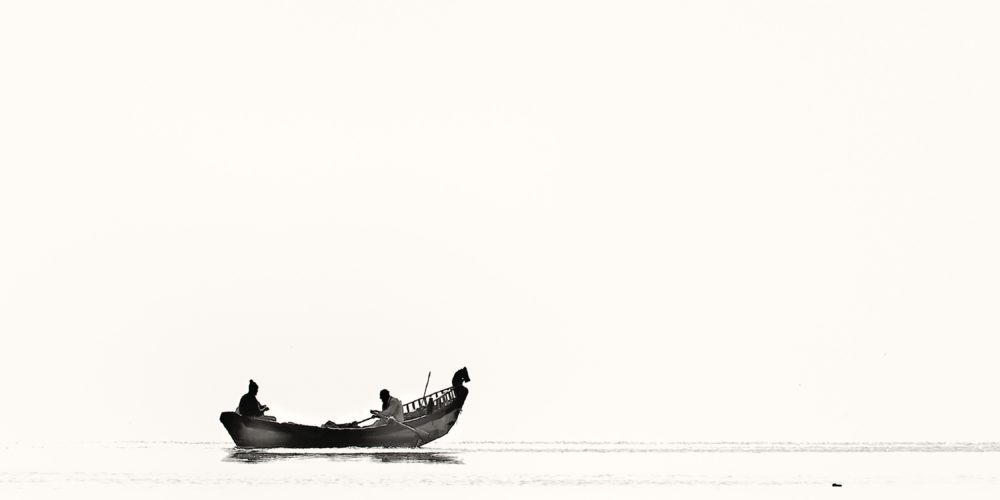To deal bigger, start small

The classic novel Siddhartha was first published by Hermann Hesse in 1922. It is the story of a man on a journey of self-discovery. He tries everything to seek wisdom. He renounces material possessions and becomes a wandering ascetic. He reverses into sensual pleasure and material accumulation. He then wearies of the game of life until, finally, gazing at a river gives him the answer.
The book came to me in the middle of my life, when I too was wrestling with questions of meaning. Is meaning to be found in love and kinship? In accomplishment and gain? In duty and fortitude? In spiritual seeking? In all of the above, or in none?
One chapter in particular caused me to pause deeply, and ultimately choose a different path in life. It is called “With the Childlike People.” Who are these infantile creatures being referred to? Businessfolk, and ordinary people engaged in ordinary activities and pleasures.
After a period of voluntary destitution, Siddhartha goes to join Kamaswami, a merchant, “a swiftly, smoothly moving man with very grey hair, with very intelligent, cautious eyes, with a greedy mouth.” Siddhartha becomes the merchant’s apprentice, and is taught how to do business: how to understand merchandise and trade, how to store and record, how to turn a profit. With his equanimous and detached nature, Siddharth turns out to be very good at trading. He becomes rich and powerful; his advice is sought by many, yet he is puzzled by their stresses and tribulations, their pain at losing a profit, their joy at earning more than expected.
He becomes rich and gets everything that a material life offers: beautiful clothes, a posse of servants, the finest foods and wines. But he views his fellow tycoons with quiet mockery. He gains no permanent pleasure from accumulation and from pleasing his basic senses. He is perplexed by the childlike people who place so much importance on earning a little more. Disgusted with himself for becoming one of those trapped in base missions and petty pleasures, he gets up and walks out of his life.
Such dramatic renunciation is not in most people’s grasp, but gaining a degree of wisdom certainly is. When you look upon your possessions and see only a curse and a burden, wisdom is knocking. When you tire of your relentless quarterly profit targets, wisdom is knocking. When you feel no real accomplishment from swinging a lucrative deal in your favour, wisdom is knocking.
Wisdom knocks many times at the door of our lives; rarely do we let it in. Instead we keep the door chained and bolted, afraid of what might come in and what might be taken away. And we continue the thoughtless small deals and petty transactions of our lives; tricking our customers and suppliers; being sycophants to our superiors and tyrants to our subordinates; persisting with the relentless need for more.
Need our lives be like this, devoid of the bigger deals that are available to us? Not at all. We can make money and use it well without becoming its vassal. We can appreciate finely made things without craving more and more of them. We can be fair and honest in our transactions without becoming destitute. And we can live our lives outward, radiating benefits to others, not just ourselves, as a central purpose, not just a side effect.
What we must not be is one of the childlike ones whose hairs are greying but who still runs around grasping for momentary gains and pleasures. We must not be the bloated moneyman whose wealth can transcend generations but whose greed still knows no bounds. We must not be the eternal deal-seeker who loads himself to the eyeballs with debt in order to fund ever-bigger transactions. We must not be the sad, envious creature eyeing the lives of others at the club or on Instagram. We must not be the obsessed executive who cannot raise her eyes from the game of meeting targets and clocking bonuses.
To achieve this liberation, we must calm our minds. We must lower the fevered temperature caused by too much activity and hustle. We must think more deeply about what this short and precious life actually means. We must contemplate what is bigger than us, what will outlast us, and what we must do to be more than just a speck tossed around by waves of desire and greed.
Start somewhere. Do a little deal that’s better for others than it is for you. Pay more than market rate. Plant or protect a tree. Rescue a mistreated animal. Smile at every child you meet. Give away stuff you don’t need, quickly. Tip more than is logical. Stop snapping at people.
Gently, the deals will become bigger and meaning will appear.
(Sunday Nation, 7 March 2021)

Buy Sunny Bindra's new book
The X in CX
here »
Popular Posts
- The pause that saves usJune 8, 2025
- Where are you rushing to—your funeral?June 29, 2025
- How to spot a real thinkerJune 15, 2025
- Built the app, forgot the flowJune 22, 2025
- The first push is the hardestJune 1, 2025















